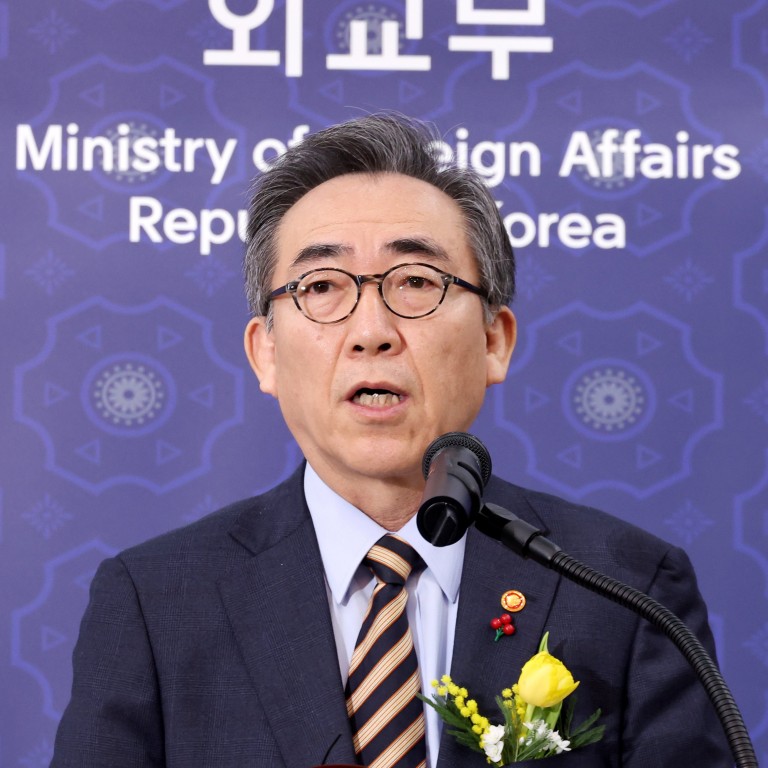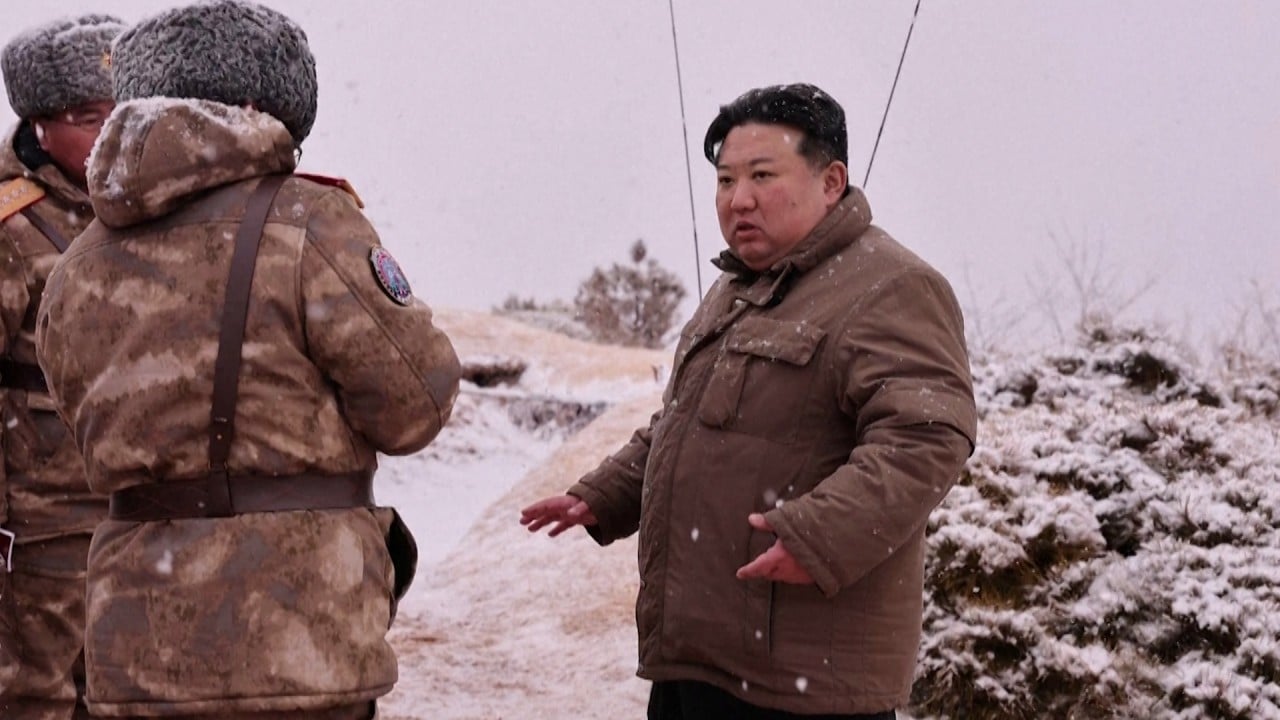
China-South Korea relations: at last, foreign ministers talk as shadow of North Korea, Russia, US, Japan loom over ties
- In the first phone call between Wang Yi and Cho Tae-yul, Beijing vows to uphold ‘stability and continuity’ in its South Korea policy
- The two also agreed to accelerate preparations for a summit between China, South Korea and Japan, according to Seoul
In a statement from the Chinese foreign ministry, Wang said China would uphold “stability and continuity” in its South Korea policy, while calling on Seoul to have a “positive, objective and friendly” policy towards Beijing.
“China maintains stability and continuity in its policy towards South Korea, and always regards South Korea as an important cooperative partner,” Wang said.
“We hope that South Korea will pursue a positive, objective and friendly policy towards China, abide by the one-China principle, safeguard the political foundation of China-South Korea relations, and push bilateral relations back to a healthy and stable development track.”
Cho, who was sworn in on January 12, has already spoken with his counterparts from the United States, Japan, Australia and Vietnam.
His predecessor, Park Jin, held a video call with Wang four days after entering office but Cho’s call with Wang could not be scheduled earlier because of the Chinese minister’s busy schedule, including trips to Africa and Thailand last month, according to South Korean media.
Is South Korea ‘adopting Japanese narratives’ on disputed islets under Yoon?
China’s ties with its East Asian neighbour have been strained in recent years over Seoul’s closer alignment with the US, North Korea’s increasing military ambition and President Yoon Suk-yeol’s controversial remarks about Taiwan, which Beijing sees as part of China to be reunited by force if necessary.
Most countries, including South Korea and the US, do not recognise Taiwan as an independent state but Washington is opposed to any attempt to take the island by force and is committed to arming Taiwan.
According to Beijing’s statement, Cho said the “one-China” position of the country had not changed. Seoul, unlike other allies such as the US and Japan, did not congratulate president-elect William Lai Ching-te after Taiwan’s elections last month.
According to a statement from Seoul’s foreign ministry, Wang invited Cho to Beijing for a visit and the South Korean minister agreed to do so “at a mutually convenient time”.
Wang and Cho also discussed North Korea in the meeting, with Wang saying: “The current tensions on the peninsula happen for a reason.
“We hope that all parties will remain calm and restrained, refrain from words and deeds that aggravate tensions, and resolve their legitimate concerns through dialogue and consultation.”
Trump may make North Korea deal, embolden China, if he wins election: Bolton
South Korea believes China has influence over Pyongyang’s military ambition, while Beijing has insisted that increasing defence cooperation between Seoul, Washington and Tokyo escalates tensions in the Korean peninsula.
Both also highlighted the importance of stable supply chain management, as Wang urged economic issues not to be politicised.
South Korea recorded its first trade deficit with China for the first time in 31 years in 2023, with China importing fewer chips from South Korea as Beijing pushed for technology self-reliance amid its competition with the US.
It also complained about delays of urea exports, a type of nitrogen used as fertiliser in agriculture that Seoul mostly imports from China, which is believed to have limited exports because of a shortage of the product within the country.

 - Kawala Xie.jpg?itok=NogZcyZ-&v=1661304068)

